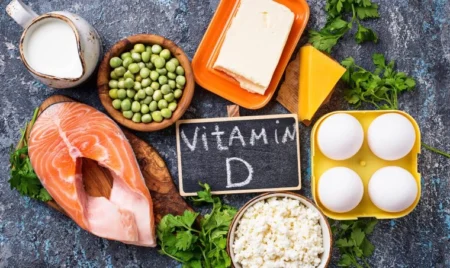Introduction
In the quest for better health and wellness, many individuals turn to natural substances with proven benefits. One such substance is fitosterina, a compound gaining popularity for its remarkable health advantages. This article delves into the various benefits and uses of fitosterina, exploring how it can contribute to a healthier lifestyle.
Understanding Fitosterina
What is Fitosterina?
Fitosterina, also known as phytosterol, is a naturally occurring compound found in plant cell membranes. It is structurally similar to cholesterol but differs in its functions and health effects. Phytosterols are present in various foods, including fruits, vegetables, nuts, seeds, and legumes. They are also available as dietary supplements.
Types of Phytosterols
Phytosterols are classified into two main types: sterols and stanols. Both types are effective in reducing cholesterol levels, but they work slightly differently in the body. Sterols are more commonly found in the human diet, whereas stanols are usually added to food products as fortifying agents.
Health Benefits of Fitosterina
Cholesterol Reduction
One of the most well-known benefits of fitosterina is its ability to lower cholesterol levels. Studies have shown that consuming phytosterols can significantly reduce low-density lipoprotein (LDL) cholesterol, often referred to as “bad” cholesterol. Phytosterols work by blocking the absorption of cholesterol in the intestines, leading to lower overall cholesterol levels in the blood.
Mechanism of Action
Fitosterina competes with dietary cholesterol for absorption in the digestive system. Since it has a similar structure to cholesterol, it effectively blocks cholesterol from being absorbed, leading to its excretion from the body. This mechanism is beneficial for individuals with high cholesterol levels or those looking to maintain healthy cholesterol levels.
Heart Health
Lowering LDL cholesterol is directly linked to improved heart health. High levels of LDL cholesterol are a major risk factor for cardiovascular diseases, including heart attacks and strokes. By incorporating fitosterina into the diet, individuals can reduce their risk of developing heart-related conditions.
Anti-Inflammatory Properties
Fitosterina has also been found to possess anti-inflammatory properties. Chronic inflammation is associated with various health issues, including heart disease, diabetes, and certain cancers. Phytosterols help reduce inflammation in the body, promoting overall health and potentially preventing the onset of inflammatory diseases.
Immune System Support
Another significant benefit of fitosterina is its ability to support the immune system. Phytosterols enhance the activity of immune cells, helping the body fight off infections and diseases more effectively. A robust immune system is crucial for maintaining good health and preventing illnesses.
Cancer Prevention
Research suggests that fitosterina may play a role in cancer prevention. Some studies have indicated that phytosterols can inhibit the growth of certain cancer cells, particularly in the colon, breast, and prostate. While more research is needed to fully understand the mechanisms behind this effect, incorporating fitosterina into the diet may offer protective benefits against certain types of cancer.
Sources of Fitosterina
Natural Food Sources
Fitosterina is naturally present in a variety of plant-based foods. Some of the richest sources include:
- Nuts and Seeds: Almonds, walnuts, sunflower seeds, and sesame seeds.
- Vegetables: Broccoli, Brussels sprouts, and cauliflower.
- Fruits: Oranges, apples, and avocados.
- Legumes: Beans, lentils, and peas.
- Vegetable Oils: Canola oil, olive oil, and corn oil.
Fortified Foods
Many food products are now fortified with phytosterols to help individuals increase their intake. These include margarine, orange juice, yogurt, and milk. Consuming fortified foods can be an easy and effective way to incorporate fitosterina into your diet.
Dietary Supplements
For those who may not get enough fitosterina from their diet, dietary supplements are available. These supplements come in various forms, including capsules, tablets, and powders. It is essential to consult with a healthcare professional before starting any supplement regimen to ensure it is appropriate for your individual needs.
Incorporating Fitosterina into Your Diet
Daily Recommendations
The American Heart Association recommends consuming 2 grams of phytosterols daily to achieve cholesterol-lowering benefits. This amount can be obtained through a combination of natural food sources and fortified foods.
Meal Ideas
Here are some meal ideas to help you incorporate fitosterina into your daily diet:
- Breakfast: Start your day with a bowl of oatmeal topped with nuts and seeds, or enjoy a smoothie made with fruits and fortified yogurt.
- Lunch: Prepare a salad with a variety of vegetables, beans, and a dressing made from olive oil.
- Dinner: Include a serving of broccoli or Brussels sprouts as a side dish, and use vegetable oil for cooking.
- Snacks: Keep nuts and seeds handy for a quick and nutritious snack throughout the day.
Potential Side Effects and Considerations
Safety and Tolerability
Fitosterina is generally considered safe for most people when consumed in recommended amounts. However, some individuals may experience mild side effects, such as digestive discomfort, particularly when taking high doses of supplements.
Phytosterolemia
Phytosterolemia, also known as sitosterolemia, is a rare genetic condition where individuals absorb phytosterols more efficiently, leading to high levels in the blood. People with this condition should avoid consuming large amounts of fitosterina and consult with a healthcare professional for personalized advice.
Interactions with Medications
Phytosterols can interact with certain medications, including cholesterol-lowering drugs like statins. If you are taking any medication, it is essential to discuss the use of fitosterina with your healthcare provider to avoid potential interactions.
FAQs
1. What is fitosterina?
It also known as phytosterol, is a natural compound found in plant cell membranes. It is similar in structure to cholesterol and is found in various foods like nuts, seeds, vegetables, and fruits.
2. How does fitosterina help reduce cholesterol levels?
It helps reduce cholesterol levels by blocking the absorption of cholesterol in the intestines. This leads to lower levels of low-density lipoprotein (LDL) cholesterol, often referred to as “bad” cholesterol, in the blood.
3. What are some natural food sources of fitosterina?
Natural food sources of fitosterina include almonds, walnuts, sunflower seeds, broccoli, Brussels sprouts, oranges, apples, beans, and vegetable oils like olive oil and canola oil.
4. Are there any side effects of consuming fitosterina?
It is generally safe when consumed in recommended amounts. Some individuals may experience mild digestive discomfort, especially when taking high doses of supplements. People with phytosterolemia should avoid large amounts of fitosterina.
5. Can I take fitosterina supplements if I am on medication?
Phytosterols can interact with certain medications, including cholesterol-lowering drugs like statins. It is important to consult with your healthcare provider before taking fitosterina supplements if you are on any medication.
Conclusion
Fitosterina, or phytosterol, offers numerous health benefits, particularly in reducing cholesterol levels and promoting heart health. By incorporating fitosterina-rich foods and supplements into your diet, you can take proactive steps towards better health and wellness. As with any dietary change, it is important to consult with a healthcare professional to ensure it aligns with your individual needs and health goals. Embrace the power of fitosterina and enjoy its many benefits for a healthier, happier life.








